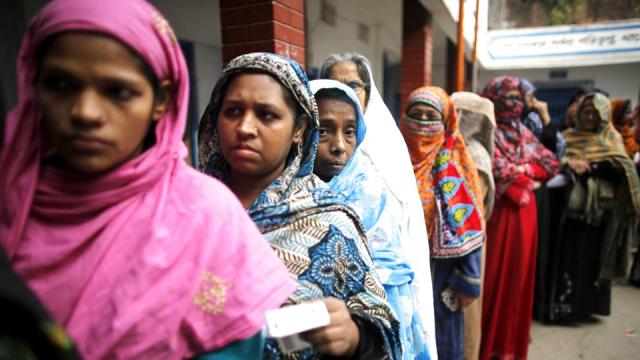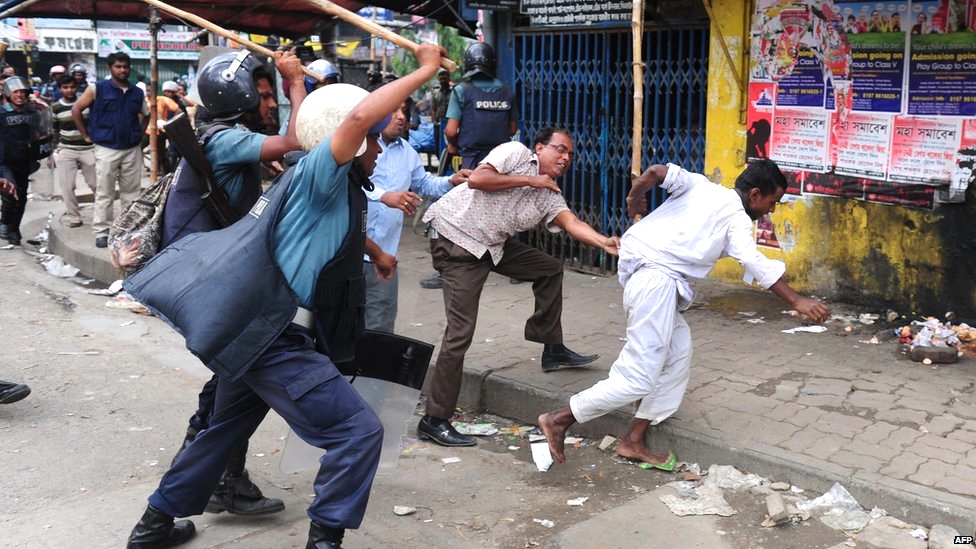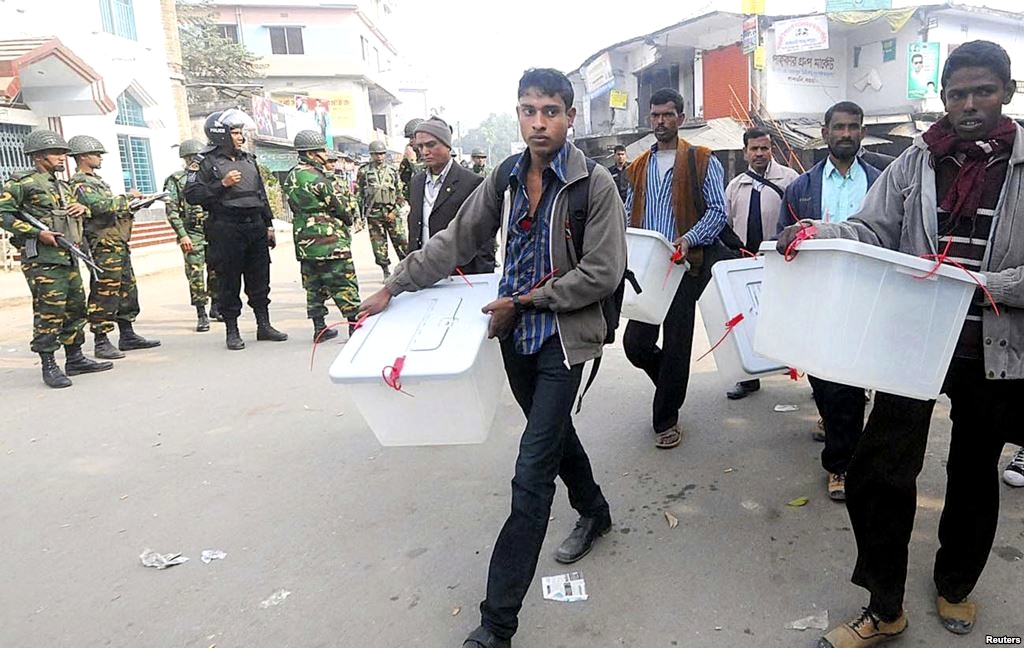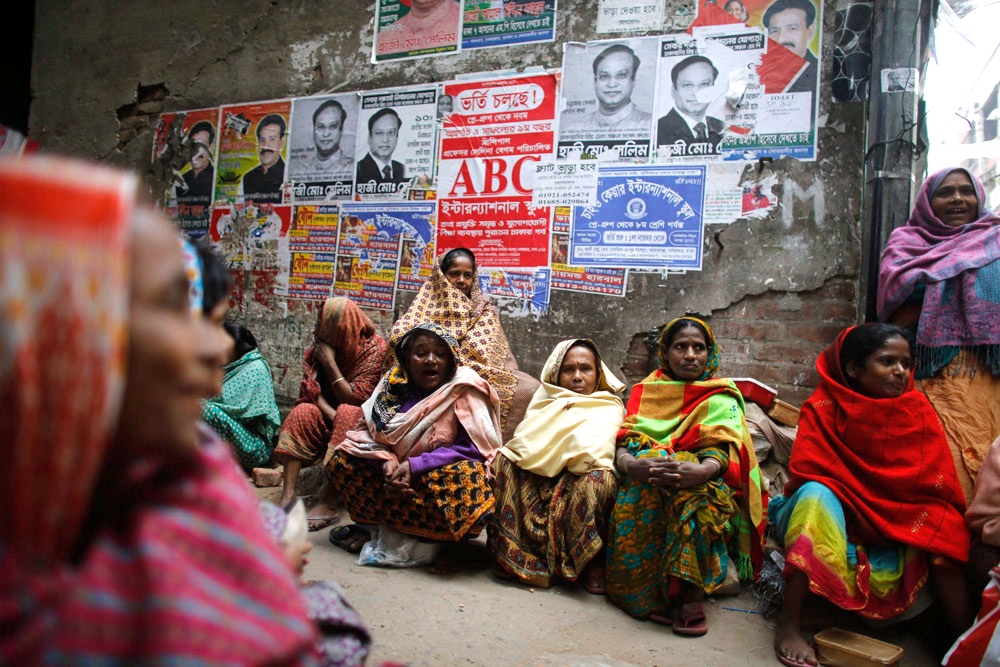
DHAKA, Bangladesh –– As calls for fresh elections continue, high-level Bangladeshi activists are going into hiding after days of intense police activity saw violence and uncertainty pervade the South Asian country. Shahin and Mohamed, a married couple and recent protest coordinators in the country's capital, Dhaka, sat down with Occupy.com in their current "home" away from police view to discuss current instability in their country.
"We are very scared right now about what is going to happen after the recent protests and the failure of our democratic process," said Shahin, a 27-year-old graduate student in India, who returned to Dhaka to join the demonstrations earlier this month at a textile factory and to call for new elections promoting "more equity" among Bangladeshis.
The vote last Sunday saw the ruling government win easily in what observers said was an election fraught with irregularities, bullying and a spirit of volatile uncertainty that had gripped the country.
Political tension and violence led up to the Sunday vote and saw at least 18 people killed in election-related violence across the capital and other pockets of the country. Activists staged boycotts, strikes and transportation blockades in an effort to show strength against Prime Minister Sheikh Hasina's government.
In the past year, some 300 people overall have been killed in the political violence that has wracked the country. Mohamed, 28, believes his country's future can only be achieved through a dramatic overhaul of the existing systems and by taking a fresh approach to the country's nascent democratic institutions.
"We have lived in a country where corruption and the inequality of wealth has left many of our people frustrated and without hope," he began. "This has led to unrest and the result we have seen is police violence on a massive scale in the name of the government. It is wrong and it is time to change how we do things as a country."
The pair's comments come after four leading opposition figures, including an advisor to opposition chief and former Prime Minister Khaleda Zia were jailed on Tuesday in what opposition groups are calling the "iron fist" of police and government abuse.
"More may die amid mounting daily protests demanding a new election, a call supported by the United States, the European Union and the British Commonwealth," wrote Haroon Siddiqui, a columnist for The Toronto Star. "But Bangladesh’s Prime Minister Sheikh Hasina won’t listen."
He argued that the government was fearful of losing the vote – which reports indicated they would, in a free and fair election – and used violence and fear tactics to force a government victory.
"But this time fearing a temporary handover would become permanent, [Prime Minister Hasina] changed the law," he wrote, referring to the government's prevention of opposition figures from campaigning.
As the international community and media closely watch events unfolding in Dhaka, activists who spoke with Occupy.com say the core issue at stake is the overarching wealth gap that has translated into poor labor conditions, low wages and an overall sense of frustration among the masses.
"This is why we fight with our feet and our voices," added Shahin, "and the people who don't have the power to change the system through legal and equal means, like the poor, must be given a chance to succeed in this country if we are to progress."
Mohamed and Shahin have taken sabbaticals from their studies in India to help bring about change in their homeland, though they recognize their struggle may be just beginning.
"This is a long fight and something that we must all care to heed in the coming days and months because we can change things on the ground through protests and pressure," added Mohamed. "It happens in other countries, so why not here? We have to be willing to die to make change happen for the better of this country."
Strikes now hitting the Bangladeshi garment industry – the world's second largest, after China – could mean a disruption in orders from major international companies, threatening what remains of the country's struggling economy. And as the country continues to endure street violence, protests and uncertainty as activists call for new and fair elections, Bangladeshis of all walks of life are waiting to see what, if any, change happens next.
3 WAYS TO SHOW YOUR SUPPORT
- Log in to post comments














